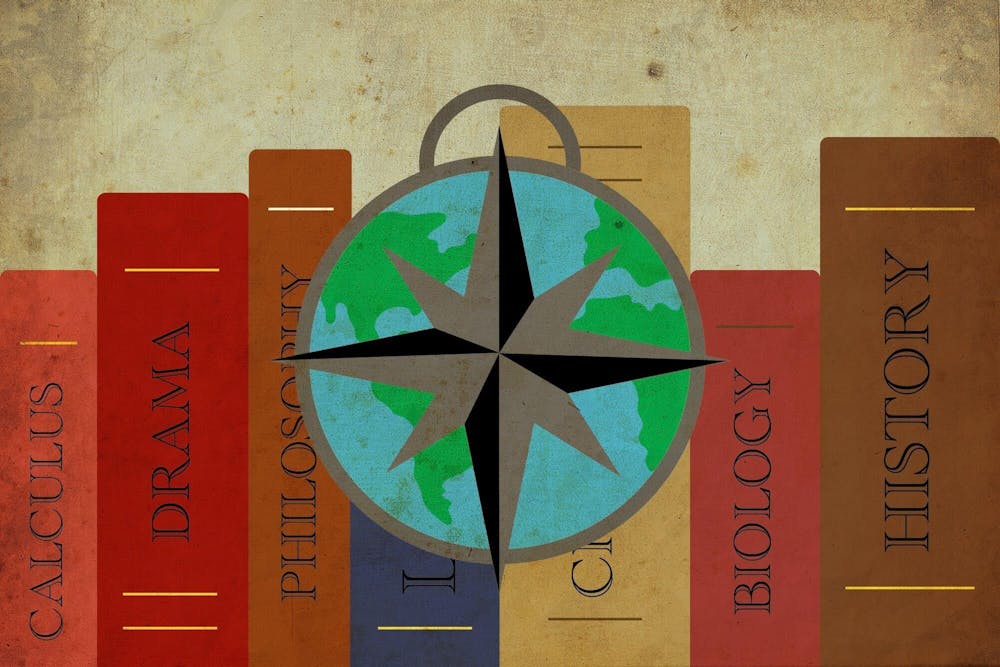On June 13, UNC-Asheville released its 2024 Academic Portfolio Review. In the review, UNCA Chancellor Kimberly van Noort proposes to phase out four degree programs and academic departments: Drama, Philosophy, Ancient Mediterranean Studies and Religious Studies. The proposal also looks to cut UNCA’s Languages program by eliminating concentrations in French and German.
STEM degrees are increasingly perceived as more valuable than degrees in the humanities across the UNC System. The Daily Tar Heel found that at UNC-Chapel Hill, the number of STEM degrees conferred has grown substantially over the past ten years, while the number of humanities degrees conferred has declined. The employment rate of graduate students in the sciences was 15 percent more than that of humanities and fine arts graduates. However, I challenge the growing belief that humanities departments are inherently less profitable than their STEM counterparts.
If proposals like UNCA’s are accepted by the UNC System Board of Governors, students who are currently enrolled in impacted programs will be able to complete their degrees. However, there would be no future admissions to these programs and the associated curriculum will be phased out. Faculty members in the impacted programs, both tenured and tenure-track, would face changes in employment and many would likely lose their jobs.
The reasoning behind this proposed blow to UNCA’s humanities departments is budgetary — the university reported a $6 million budget deficit for the 2024 fiscal year. In the review, van Noort emphasizes the role of these declines in enrollment in creating the budget deficit, arguing that the reluctance of universities to “scrutinize and evolve [their] academic offerings in line with student demand and relevance to 21st-century society” is a primary cause of UNCA’s enrollment challenges.
This assumption that disciplines in the humanities are less relevant and profitable to students has gained traction in recent years. Last year, the UNC System limited distinguished professorships to professors within STEM fields, restricting non-STEM professors’ access to prestige, pay raises and research stipends. In an August interview with The Daily Tar Heel, UNC-CH’s Chancellor Lee Roberts also expressed a desire to grow STEM programs at Carolina to combat shrinking enrollment rates of North Carolina high school graduates, citing strong student and employer demand.
Funding is undoubtedly essential to a functioning university. If certain programs and departments face drastic and sustained declines in student demand such that maintaining them would impact the quality of education and strain resources in other areas, it’s reasonable to phase them out. Students entering university face steep tuition costs, increasingly competitive job markets and rising costs of living, all of which heavily influence decisions about what degree to earn. Universities, especially public ones, should support the academic and professional aspirations of their students by offering programs that leave graduates better off.
As an economics and history double major at UNC-CH, I have a cross-section of interests that have allowed me to see how policy decisions by the System affect both sides of this arbitrary disciplinary divide. You may not care about the Roman Empire, but a degree in Ancient Mediterranean Studies equips students with not only a greater historical understanding of the world, but also the skills to research, analyze, synthesize and communicate their findings and arguments.
My point isn’t to pit disciplines against each other in a competition of profitability and marginal returns. Rather, I want to emphasize the need for interdisciplinary cooperation. Being able to apply analytical skills from my economics classes allows me to better understand history and craft arguments. Likewise, the contextual understanding and communication skills that studying history yields allows me to understand and apply economic principles in the present.
The UNC System cannot continue to undervalue its humanities programs. No single area of study is inherently more valuable than another; interdisciplinary approaches to learning are essential for societal progress. The robust skillset and unique perspectives yielded by degrees from programs like Drama and Philosophy render students not only competitive in professional settings but also more informed, engaged and valuable members of their communities.




